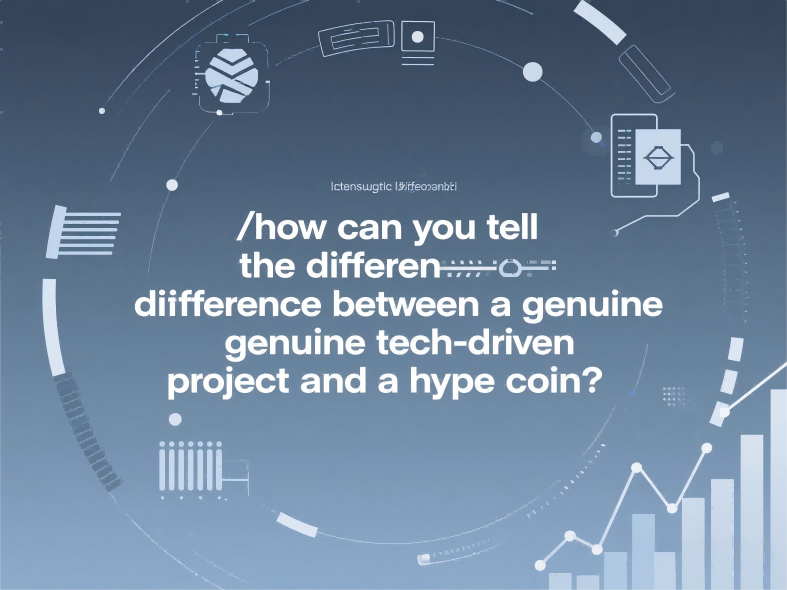Cut Through the Noise: Is That Crypto Project Real or Just Hype?
Ever scroll through crypto Twitter and see a coin pumping like crazy, only to wonder: “Is this the real deal, or just another flash in the pan?” We’ve all been there. That moment you ask yourself if you’re looking at genuine innovation or just a well-marketed bubble waiting to pop. Telling the difference between a tech-driven project and a pure hype coin isn’t just useful—it’s essential if you want to stay ahead in this fast-moving market.
Let’s break it down together.

Look Beyond the Whitepaper—Is There a Working Product?
Sure, just about every project has a fancy whitepaper filled with buzzwords like “blockchain,” “AI-powered,” and “decentralized ecosystem.” But how many actually have a working product you can try today? Real projects build in public. They have testnets, prototype dashboards, and community testing phases. Hype coins, on the other hand, often have more promises than progress.
Remember the ICO boom? Countless projects raised millions with nothing more than a PDF. These days, it’s the same story with memecoins and “viral” tokens that surge on social media trends but offer zero long-term utility. A real project solves a real problem—whether it’s making DeFi more efficient, enhancing privacy, or bridging traditional finance with crypto.
Team Transparency and Track Record Matter
Let’s keep it real: if you can’t find the team members on LinkedIn or see their past contributions, that’s a red flag. Legitimate projects are usually backed by developers, advisors, and leaders with traceable experience in tech, finance, or blockchain. Anonymous teams might sound cool and “crypto-native,” but when things go wrong, accountability disappears.
Hype coins often hide behind mascots, memes, or unknown founders. Real builders share updates, join AMAs, and let the tech speak for itself.
Adoption Over Advertisement
Anyone can buy a billboard in Times Square or trend on Twitter with paid influencers. But true adoption is quieter and more meaningful. Check if people are actually using the project’s protocol. Are there real transactions happening? Is the token being used for governance, staking, or accessing services—or is it just being traded back and forth?
Projects with utility tend to integrate with other platforms. Think oracles like Chainlink, decentralized exchanges like Uniswap, or lending protocols like Aave. These aren’t just tokens; they’re part of a larger ecosystem.
How This Plays Into a Larger Trading Strategy
Knowing the difference isn’t just about picking good altcoins—it’s about building a smarter, more resilient portfolio. Whether you’re trading crypto, forex, stocks, or commodities, the same rules apply: don’t invest in something you don’t understand.
Leverage can amplify gains on a real project with strong fundamentals, but it can also wipe you out if you’re chasing hype. Use charting tools and on-chain analytics to back your decisions, not just emotions or FOMO. And always, always do your own research (DYOR).
The Future Is Built on Substance, Not Hype
Decentralized finance is still evolving. Challenges like regulation, security vulnerabilities, and scalability remain. But the next wave of innovation—AI-driven trading, smarter contracts, and cross-chain interoperability—will be led by projects with real technology, not just TikTok hype.
So next time you see a coin shooting up, take a breath. Take a closer look. Your portfolio will thank you.
Spot trading is straightforward: you buy an asset like Bitcoin, Tesla stock, or gold, and you profit if the price goes up
Read MoreTrading has always carried an air of possibility. The idea of turning a well-timed decision into a life-changing profit a
Read MoreStart your CFD trading
Your All in One Trading APP PFD